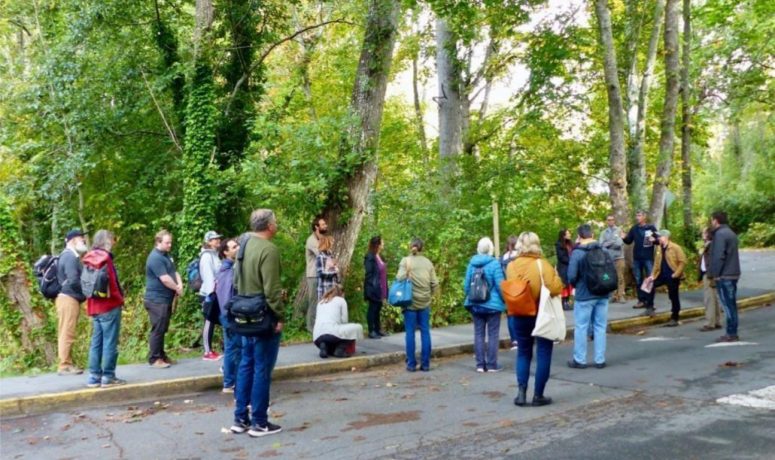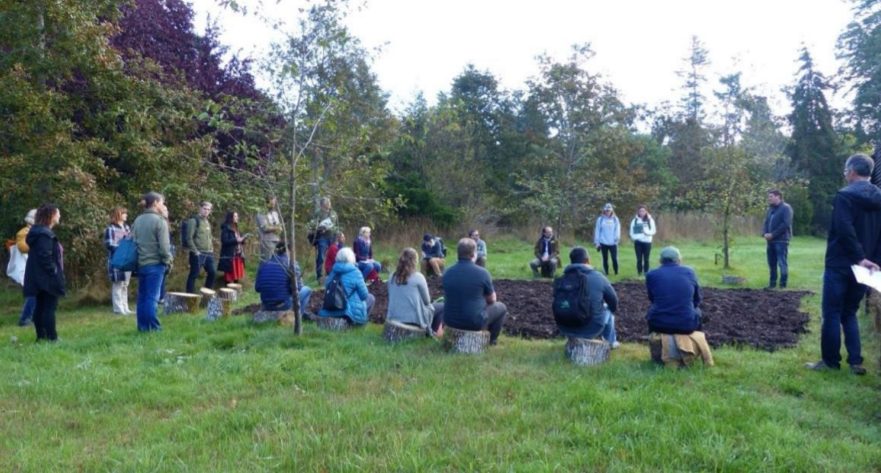Collaborative relationships along with best practices for sustainable educational projects will support the growth of land and water-based learning.
This is an integral element of Indigenous resurgence and ways of learning. These recommendations came out of our individual interviews with teachers in Districts 61 and 63 this past spring. As the next step in this Promo-Science project, we invited teachers to spend a day at UVic and meet with like-minded faculty and community. Our goal, based on the requests of teachers, was to create opportunities for conversations, questions, and networking without a highly structured environment.
On Thursday, October 7th a group of 14 teachers and 12 UVic community members met up, ready to explore the campus. To start off in a good way, we began at the First Peoples House with a territorial acknowledgment followed by a circle of introductions. Surrounded by rich fall colours and bright sunlight, we visited key sites of restoration around the campus. Bowker Creek Headwater was our first stop, where Living Lab partners John Harris described the importance of the creek for Indigenous communities, while John Taylor and Nancy Shackelford talked about the potential to create a holistic model of restoration at the headwater. To see a site in the process of restoration, we walked over to the newly planted camas garden. John Harris recounted the excitement of Indigenous youth who started the garden this past summer and acknowledged the contributions of Reynold’s secondary students in September. The garden is not just an ecological restoration project but reflects Indigenous cultural revitalization and belonging on campus. We continued our walk with impromptu talks by faculty, to learn more about the complex work to balance ecosystems on campus, and the potential for these sites to be educational.
In the afternoon, Dr. Sanford began by affirming the experience and knowledge that teachers bring to this NSERC Promo-Science project, and asked three key questions:
• How can we support each other in attaining our goals and aspirations?
• How can Promo Science and Living Lab best support you with resources?
• How can we collectively create sustainable connections/networking across schools/districts and university campuses?
The buzz of conversations, almost deafening at moments, illustrated how this group — teachers, faculty and UVic community – are passionate and committed to creating systematic change. Ideas affirmed that knowledge mobilization of environmental studies, land and water-based learning and restoration must include conversations between school districts and the university. Next steps include developing structures that will support collaborative relationships and resource sharing, as well as identifying pathways for faculty to support teachers and programs in schools.
– Tracey Murphy, Research Assistant for the Living Lab Project


